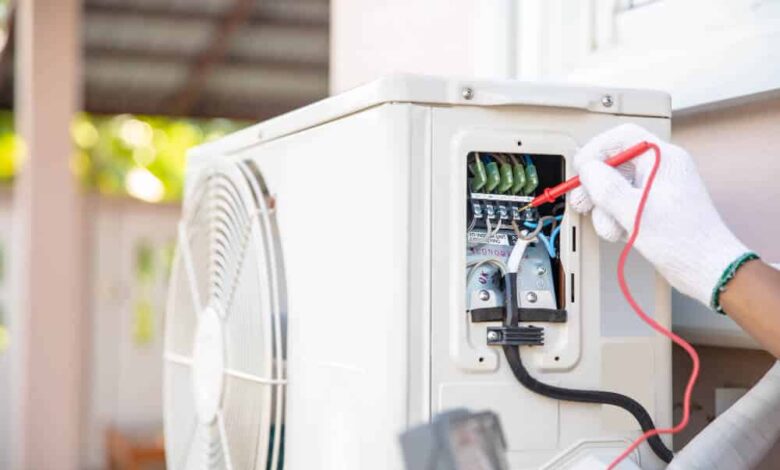Can You Repair an AC Compressor?

When your air conditioning system starts acting up, it can be a source of frustration and discomfort, especially during hot summer months. One of the most critical components of your AC unit is the compressor, responsible for circulating refrigerant and ensuring proper cooling. But what happens when your AC compressor fails? Can you repair an ac compressor, or is replacement the only option? Let’s delve into the details to find out.
Understanding the Role of an AC Compressor
Before we explore repair options, it’s essential to understand the role of the AC compressor in your cooling system. The compressor plays a crucial role in the refrigeration cycle, where it compresses refrigerant gas, raising its pressure and temperature. This high-pressure, high-temperature gas then flows through the condenser coil, where it releases heat and condenses into a liquid. The liquid refrigerant then travels to the evaporator coil, where it absorbs heat from the indoor air, cooling it down. Finally, the refrigerant returns to the compressor to restart the cycle.
Common Signs of AC Compressor Issues
Identifying potential issues with your AC compressor early on can help prevent major breakdowns and costly repairs. Here are some common signs that indicate compressor problems:
Warm Air:
If your AC is blowing warm air instead of cold, it could signal compressor issues. A failing compressor may struggle to circulate refrigerant effectively, resulting in inadequate cooling.
Loud or Unusual Sounds: Strange noises such as grinding, hissing, or clunking coming from your AC unit could indicate compressor problems. These noises may stem from worn-out components or internal damage within the compressor.
Frequent Cycling:
If your AC unit turns on and off frequently, known as short cycling, it could be a sign of compressor issues. Short cycling puts excessive strain on the compressor and other components, leading to premature wear and tear.
Leaking Refrigerant:
A refrigerant leak can put undue pressure on the compressor, affecting its performance and lifespan. If you notice refrigerant pooling around your outdoor unit or a decline in cooling efficiency, it’s essential to address the issue promptly.
Can You Repair an AC Compressor?
Repairing an AC compressor is a complex task that typically requires specialized knowledge and equipment. In some cases, certain compressor issues may be repairable, while others may necessitate replacement. Here’s a closer look at the factors that determine whether a compressor can be repaired:
Type of Damage:
The extent and type of damage to the compressor play a significant role in determining repair feasibility. Minor issues such as electrical faults or worn-out components may be repairable, while severe damage such as compressor motor failure may require replacement.
Age and Condition:
The age and overall condition of the compressor also influence repair decisions. Older compressors nearing the end of their lifespan may not be worth repairing, as they are more prone to recurring issues and may fail again shortly after repair.
Cost Considerations:
Repairing a compressor can be costly, especially if it requires extensive repairs or replacement of major components. In some cases, the cost of repair may approach or exceed the cost of a new compressor, making replacement a more practical option.
Manufacturer Recommendations:
Some manufacturers may offer guidelines or recommendations regarding compressor repair versus replacement. Following manufacturer guidelines can help ensure optimal performance and warranty compliance.
Repair vs. Replacement: Making the Right Decision
When faced with compressor issues, homeowners are often tasked with deciding between repair and replacement. Here are some factors to consider when making this decision:
Age of the Unit:
If your AC unit is relatively new and the compressor is the only issue, repairing it may be a viable option. However, if the unit is nearing the end of its expected lifespan, replacement may be more cost-effective in the long run.
Cost of Repair:
Obtain quotes from HVAC professionals for repairing the compressor. Compare the cost of repair with the cost of a new compressor, factoring in any additional warranties or guarantees offered with replacement units.
Overall Condition:
Consider the overall condition of your AC unit and its components. If other components are showing signs of wear or are likely to fail soon, investing in a new unit may be more prudent than repairing the compressor alone.
Energy Efficiency:
Newer AC units often boast improved energy efficiency compared to older models. If your current unit is outdated and inefficient, replacing it with a newer, more energy-efficient model can lead to long-term savings on energy bills.
Conclusion
While it’s possible to repair certain issues with an AC compressor, the decision to repair or replace ultimately depends on various factors such as the extent of damage, age of the unit, and cost considerations. Consulting with a qualified HVAC professional can help assess the situation and determine the most cost-effective solution for your cooling needs. Whether you opt for repair or replacement, prioritizing regular maintenance and prompt repairs can help prolong the lifespan of your AC system and keep your home comfortable year-round.

